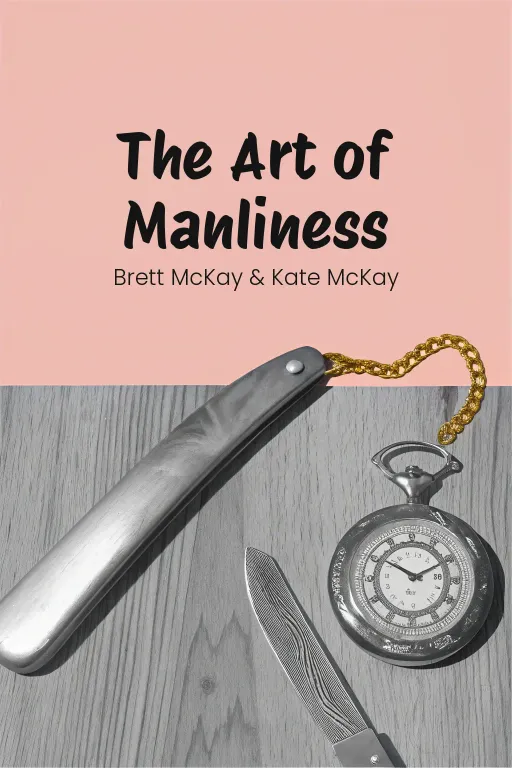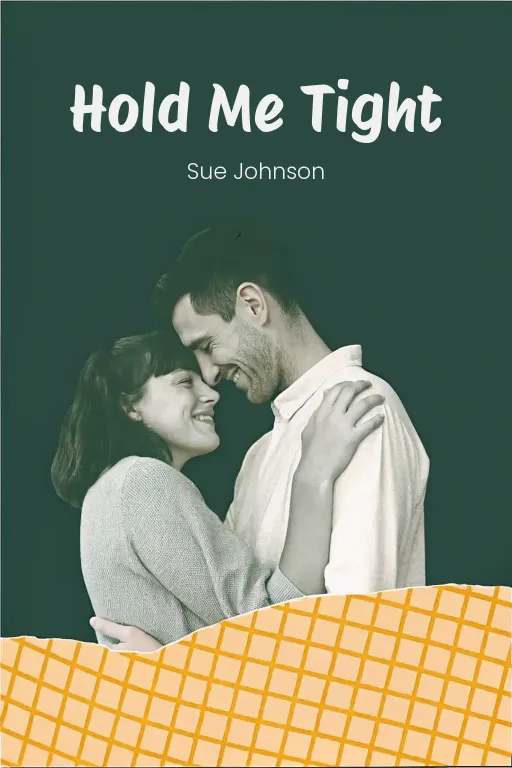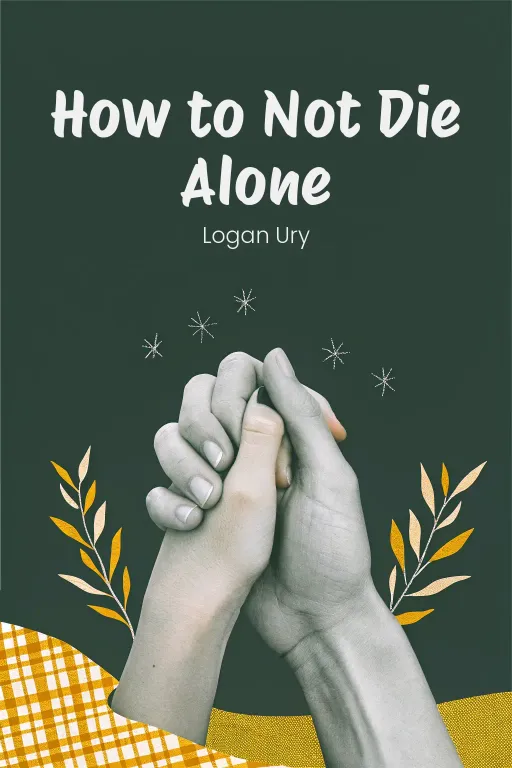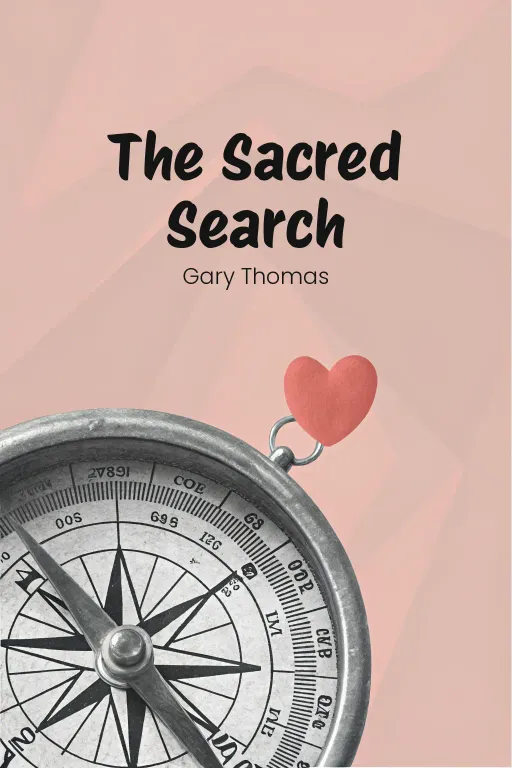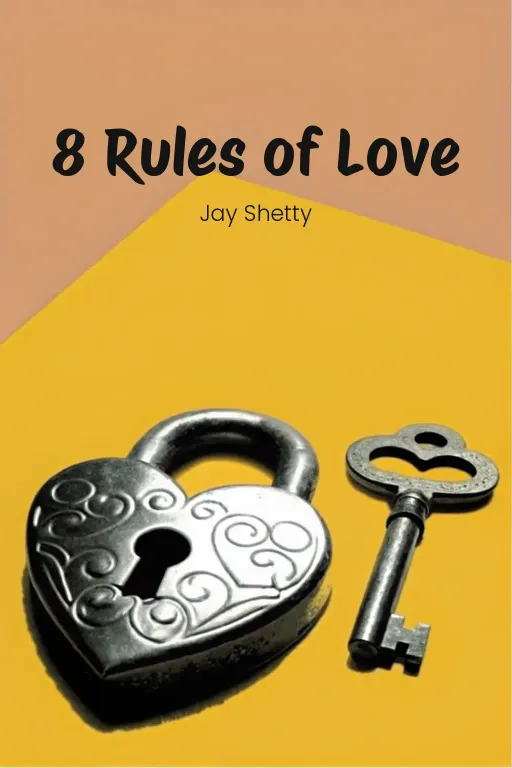
Be a Man: Virtues That Matter Now
Podcast by Beta You with Alex and Michelle
Classic Skills and Manners for the Modern Man
Be a Man: Virtues That Matter Now
Part 1
Alex: Welcome, everyone! Today we're tackling a subject that's both classic and endlessly relevant: the art of manliness. Whether you're actively working on self-improvement, or just curious about what “being a man” even means these days, we’ve got a lot to explore. Michelle: Okay, Alex, but let's be honest—if I announced I was doing a deep dive into "manliness," I might get a few eye-rolls, right? So, what are we really talking about, here? Alex: That's a fair point, Michelle. We're definitely not talking about those tired old stereotypes, or some kind of macho posturing. We're actually inspired by Brett and Kate McKay’s book, The Art of Manliness: Classic Skills and Manners for the Modern Man. It reframes masculinity as a journey towards cultivating virtues, honing practical skills, and building meaningful connections. It's about taking those enduring values—like courage, honesty, leadership—and making them relevant today. Michelle: So, this isn't just a guide to "chopping wood and sporting a beard," then? Alex: Exactly! It's about stepping back and looking at the bigger picture – how striving to be a better man influences your relationships, your work, and even your impact on the world. The book provides traditional principles and actionable advice—covering everything from dressing well to hosting guests, handling emergencies, and navigating significant life events. Michelle: Sounds less like a "masculinity manual" and more like a blueprint for becoming a well-rounded person. Alex: Precisely. In today’s podcast, we'll break it down into three core areas. First, we'll dive into those timeless virtues—think of them as the bedrock of character, things like thriftiness, sincerity, and courage. Michelle: Alright, classic virtues... but what prevents them from feeling, well, a bit antiquated? Alex: Good question. That leads us to our second key point: how we apply these virtues in today's world. We're talking about everything from grooming and good manners to our interactions in social settings. We’ll even tackle some potentially thorny questions – like, does holding the door open still matter? Michelle: I might have some strong opinions on that one. And third? Alex: We'll zoom out to look at the bigger picture. How these principles radiate outwards, shaping personal growth and contributing to a stronger community. It's not just about the individual man; it's about his impact on the world around him. Michelle: Okay, so: virtues, practical application, and then the broader societal connection. Got it. So, basically, today's episode is a guide to modern manliness, minus the outdated tropes, but with all the substance. Let's dive in.
Rediscovering Traditional Virtues of Manliness
Part 2
Alex: Okay, Michelle, so let's dive right in. Traditional virtues, right? Integrity, respect... What makes them specifically "manly"? Couldn't we just say they're good for everyone? Michelle: That's exactly what I'm thinking! Are we gatekeeping good behavior now? Alex: Not at all! They are universal, and that's the beauty of it, actually. What's important here is how these virtues have been historically connected to responsible manhood. Take integrity, for instance. It's about standing by your principles, being honest and keeping your word. These qualities have always been core to strong leaders, right? Think about George Washington. He could have become a king after the Revolutionary War, but he chose democracy. That restraint, that commitment to ethics, is as vital to manliness as physical strength. Michelle: Alright, Washington gets a gold star for not going full-tyrant. But how does that relate to, you know, my life? I'm not starting a country anytime soon. Alex: <Enthusiastically> Right! It's about scaling it down. Think about those smaller, daily moments where integrity makes a huge difference. Owning up to a mistake at work instead of passing the blame, or keeping a promise to your kids, even if it means skipping something you'd rather do. When you act with integrity, you're building trust and setting an example, not just for yourself, but for everyone around you. Michelle: Ah, so it's not about grand gestures, more about consistently doing the right thing, even when it's inconvenient. I get it. Okay, next up: respect. Now, how do we turn this from a greeting card sentiment, to something real? Alex: Respect is made tangible through action. Acknowledging the worth and dignity of others in a way that changes how you behave. The book connects this to gentlemanly conduct. Tipping, for instance, isn't just about money, it's a small act recognizing someone's service. Or something as simple as listening without interrupting. It shows respect for someone else's thoughts and time, which are arguably more valuable than— Michelle: Okay, but how do we avoid performative respect, you know? Like the book mentioned respecting people who can't do anything for you, which, let's be honest, sounds beautiful but tough to pull off in a very “what's in it for me” world. Alex: It all boils down to your intention. Respect isn't a performance if it's sincere. As William Lyon Phelps said once, "The test of a gentleman is how he treats someone who can do nothing for him.” That pushes you to do good, not for what you'll gain, but because it aligns with who you want to be. Michelle: Okay, I'm seeing it—respect as a self-defining line. Speaking of traits that sound good in theory... Let's talk about courage. I'm guessing this isn't just about charging into battle with a sword, right? Alex: <Chuckles> Definitely not! Courage isn't just battlefield heroics, it’s also about daily acts of bravery. What stands out here is social courage. Like, being vulnerable enough to express your feelings, or taking a moral stand even when it's uncomfortable. The book refers to Abraham Lincoln, who showed courage not just confronting a divided nation, but in cultivating human connections. The ability to reconcile strength with empathy is what makes courage “really” meaningful. Michelle: Okay, let's make that practical. What does social courage look like for the average guy navigating work? Alex: Imagine you're in a meeting, and a colleague says something off or even offensive. Social courage is stepping up to correct them. Not aggressively, but addressing it thoughtfully. Or think about apologizing when you're wrong. That takes courage, because it requires vulnerability and a willingness to acknowledge fault. Michelle: Vulnerability as courage... interesting twist! Traditional masculinity always frames it as "never back down, stand your ground." But you're arguing that real courage might involve embracing your softer side? Alex: Exactly! Strength isn't diminished by tenderness, it's enhanced. Courage means opening yourself up - whether that's to connections, accountability, or even emotional risks like forgiving someone fully. Michelle: Alright, I'm sold on that. Let's keep things moving to sincerity. This one seems obvious, like don't lie, don't exaggerate. But what's the real challenge? Alex: The challenge for sincerity is that we tend to avoid discomfort or conflict in communication, which can lead to insincerity. Benjamin Franklin, one of the book’s guiding figures, also struggled with this himself. His rule was to use “no hurtful deceit” but to also “think innocently and justly.” Sincerity asks you to communicate truth without malice while staying transparent. Michelle: Okay, sounds good in a philosophy book, but what if I'm a manager with an underperforming employee? Do I lay down the hammer, or do I try to soften the blow? Alex: <Thoughtfully> There's a middle ground. Constructive feedback can be truthful without being unnecessarily harsh. A sincere approach might be to address the problem directly—"Here's where there's room for improvement"—while framing it as a chance to grow. You're being honest, but also encouraging, which builds trust instead of defensiveness. Michelle: I see, truth with a side of grace. Last on our list is humility. Probably the most underrated virtue. What's the deal? Alex: Humility is about staying grounded, acknowledging strengths but also limitations, remaining open to learning. Socrates' philosophy, "I know that I know nothing," wasn't self-deprecation. It was a mindset of constant curiosity. The book argues that humility doesn’t weaken authority, it enhances it because people respect leaders who admit their humanity. Michelle: But how do you show humility, as a leader, without looking unsure of yourself? Alex: By being self-aware. Think of a parent who admits a mistake to their children. That humility doesn't diminish their authority, it reinforces it by showing they're accountable and creating mutual respect. Michelle: Aha... So, humility isn't about diminishing yourself, it's more about leaving the ego out of it. Okay Alex! We’ve covered integrity, respect, courage, sincerity, and humility. Five foundation virtues for building manliness. Alex: That's right! And they're not just concepts, they shape how you interact with others, and the legacy you pass on. Next up, we'll see how to live these virtues in the world today.
Practical Applications in Modern Life
Part 3
Alex: See, by really getting these core virtues, we can get a much better handle on using them in our daily lives which is super exciting – taking these old-school values and making them work in the real world today. Michelle: Okay, so I’m guessing we’re not just talking about writing down some goals and calling it a day So what is the context? Alex: Exactly! This goes deeper into the foundations, making sure it stays practical. I mean, what good is respect or courage if it doesn’t show up in how we dress, how we act, or how we handle a crisis? These are the playgrounds where virtues get to come out and play. Michelle: Sounds good, so where are we starting? Alex: Let’s jump into dressing and grooming – the power of how we present ourselves. It's not just about looks; it's about the vibe we give off, you know? The book points out that dressing with intention sends messages of respect, confidence, and who we are. Michelle: So, it's not just like, "look good because you should?" There's more than meets the eye? Alex: Totally. How you dress is a signal – it tells the world how seriously you take yourself and the way you interact with others. A well-fitted suit, for instance, it’s not merely fabric and stitching. Professionally, meticulously, even trustworthy. The details matter – from the shoulder fit to the crispness of the shirt. Michelle: True, but what if you’re a regular guy just grabbing coffee or walking the dog? Why bother with all that? Alex: Because it’s about making the effort, not about going over the top. The book isn’t saying we need to live in suits, but about being thoughtful for the occasion. Polishing up in a professional setting, for example, shows respect for others you’re meeting. Even when you’re keeping it casual, wearing clothes that fit and are clean says you value yourself and others. Michelle: So, presentation is shorthand for respect – respect for the situation, the people around you, and yourself. I can see that, even if I skip the pocket square. What about grooming? Alex: Ah, grooming turns daily routines into self-care rituals. Think about a wet shave—it's a step back to when shaving wasn't a race. The book goes into how slowing down—the cream, the safety razor—changes it into a mindful moment. It shows you care for yourself, so you're ready to face the world looking sharp and composed. Michelle: Okay, I get the vibe, but is it “really” that deep, Alex? Or is grooming just a fancy word for vanity? Alex: Not at all, it’s about discipline. Why a clean-shaven or well-groomed look inspires trust? Because it subtly says you're reliable and have self-control. A polished outside shows the discipline that supports doing the right thing. To ditch it might not ruin you, but what does that say about how serious you take yourself? Michelle: Good grooming equals a disciplined mind. I’ll remember that! So what's next? Alex: Social etiquette – a place where respect and humility do their thing. It might sound old-fashioned with texts and emojis, but the book says etiquette is the base for “real” connections. Michelle: I've got to ask - does anyone actually write thank you notes these days? Isn't a text or email just as good? Alex: Exactly, Michelle. A handwritten note is so rare these days, it has a big impact. Can you imagine getting one? It's something you can touch, it's thoughtful, and it's done on purpose. Writing "Thank you for having me, it meant so much" needs intention, which strengthens the tie between people. It's acting civilized. Michelle: I'll give you that, a handwritten note does feel special. But what about social media? Alex: That's the problem the book brings up. Social etiquette in the digital age means putting away your phone to “really” be with the people right in front of you. Eye contact and active listening are becoming rare, but they're key to trust. Being present, whether at a lunch or a family thing, is how you build relationships, instead of letting them fade away in texts and notifications. Michelle: Okay, be present—like a tech detox meets old-school manners. Are there tips for professional scenarios? Alex: Definitely. Social etiquette in business often comes down to small but meaningful things, like tipping service staff. It's not just a transaction; it shows you recognize their effort and dignity. It shows respect that uplifts people, which makes for stronger relationships and better workplaces. Michelle: Alright, I’m starting to see a pattern—every act of etiquette is about fighting the cynicism of our on-the-go world. Now, let's get into something a bit more serious: emergency prep. Alex: Preparedness is where virtues like courage and discipline meet “real”-world responsibility. The book mentions saving a drowning person. It's about knowing what to do and being clear-headed enough to act fast. Training and planning turn panic into precision. Michelle: And for those of us who aren’t lifeguards? Alex: It’s a mindset. How many people actually know how to handle something common like a snakebite or a flat tire? The book highlights how mastering skills—like checking a wound or jump-starting a car—is more than just being self-sufficient. It’s about being dependable in our communities. When you help someone on the road, you’re not just a guy with cables; you’re part of taking care of each other. Michelle: Got it, so competence builds confidence, which then helps others too. I see the connection. And what about self-defense—where does that come in? Alex: Self-defense is about protecting yourself and those around you. But it starts with avoiding fights. The book emphasizes knowing what's going on around you, so you can calm things down and avoid danger. If all else fails, basic moves—like escape strikes or even having personal safety tools—help you handle things without making them worse. Michelle: So, only fight when you have to, but be ready if it happens. Courage, but with responsibility. Alex, this is a lot to think about, but the message is clear: these practices turn abstract virtues into “real” habits that shape how we deal with the world. Alex: Exactly. From how we dress to how we treat others, these habits aren’t just old-fashioned—they’re timeless ways to help us thrive today.
Personal Growth and Societal Impact
Part 4
Michelle: So, with these practical tools under our belt, we're really talking about the broader impact, right? How these virtues affect personal growth and our roles in society. Alex, I think we’re at the core of everything now—this ripple effect. How does building up these virtues not just make an individual better, but also improve the lives of those around them? Alex: Exactly, Michelle. This wraps up our discussion by broadening the scope from just individual growth to the impact we have on each other, showing how powerful these virtues can be. It's about fathers guiding their families, friendships becoming deeper, and leaders inspiring change. Let's start with the most foundational role—the virtuous father. Michelle: Ah, the father figure. The classic image of guidance and being there. Alex, do you think the father's role has changed in modern times? What does being a virtuous father even look like today? Alex: Things have definitely changed, but the core values are still important. A virtuous father is someone who shows responsibility, patience, and love equally. The book stresses that fathers aren't just providers—they're also emotional anchors, role models, and guides. Take something basic, like supporting a pregnant partner. It's not just about offering to carry something; it's about being involved in the whole journey, going to doctor's appointments and sharing the emotional experience, like hearing the baby's heartbeat for the first time. Michelle: That sounds powerful—feeling the heartbeat. It’s like that strengthens the commitment right then and there. What about later on—raising kids, teaching them to be strong, all that stuff? Alex: That's where virtues like patience and responsibility really come in handy. The book has a great story about a father helping his daughter get ready for a school competition. Instead of focusing on winning, he focuses on how much effort she puts in and seeing failure as a way to grow. That kind of parenting helps her become resilient—which is so important for dealing with life's problems. Michelle: So it's changing from "I want my kid to be successful" to "I want my kid to learn how to handle both success and setbacks." How does a dad balance all of this without going too far? Kids need to be able to grow on their own, right? Alex: Exactly. It's a fine line between love and responsibility. Setting boundaries while still encouraging them to be independent. For example, showing them how to manage money carefully teaches them responsibility and self-control. Kids learn from what you do, not just what you say. When they see their parent handling challenges with honesty, they’re more likely to do the same. Michelle: It's like starting a cycle of learning that goes through generations—what you show your kids could also affect their kids. Okay, let's talk about friendships. The book talks a lot about how men connect with each other today, right? Alex: It does, and it's really interesting. In the past, male friendships were emotionally deep and supportive, almost like family. Think about the strong bonds between soldiers or groups like Teddy Roosevelt's Rough Riders. But now? A lot of friendships are becoming shallow—more about doing things together than really connecting. The book gives ideas for how to make those relationships better by being more purposeful. Michelle: So not just watching sports on Sunday but actually building something deeper. How? Having long, deep talks over cigars? Alex: That's one way to do it. But it's also about being actively involved. One story in the book is about a group of friends who started going camping regularly, with challenges like building fires and finding food. Those activities create a shared sense of accomplishment and give them a chance to have real conversations. It's in those moments—away from distractions—that they can build trust and be open with each other. Michelle: Being open, there’s that word again. Let's say cigars and campfires aren't for everyone. How else could guys build deeper connections today? Alex: It's about being purposeful and creative, Michelle. Simple things, like writing letters or calling each other regularly, can make relationships stronger even when you're far apart. The book mentions a group of friends who made their relationships better by writing letters to each other when they were apart. Putting their thoughts on paper helped them express their feelings more, which often doesn't happen in texts or casual conversations. Michelle: Letters—that's an interesting idea. It's almost like doing something different just to connect more meaningfully. And what about society in general? How does making friendships better affect more than just the people involved? Alex: It makes a big difference. Strengthening these bonds can fight problems like loneliness and isolation. By creating a culture of supporting each other and being emotionally open, you're creating a ripple effect—a network of men supporting each other and their families. That leads us to leadership. Leaders, as the book says, have a big role in showing and spreading these virtues. Michelle: Let's talk about leaders. We all think of people like Roosevelt or Churchill, but how do these virtues work in an average office or community leader? Alex: Leadership is about being resilient, adaptable, and having a shared vision. The book emphasizes resilience as a key virtue. Roosevelt is a great example. After facing terrible personal losses, he used his grief to rebuild himself. That strength became a key part of his leadership style, showing others that hardship can lead to growth. Michelle: And let's not forget being able to adapt. The world changes so quickly. How do leaders handle change well? Alex: Being flexible is essential. The book talks about companies dealing with COVID-19, where leaders who switched to remote work not only kept their teams going but also found new opportunities. Being able to adapt isn't just about surviving, it's about using disruption as a way to innovate. Michelle: Alright, I get it. But leadership isn't just about being tough and thinking fast, right? The book also talks about charisma—how important is that? Alex: Charisma connects the intellectual and emotional aspects of leadership. Churchill's speeches during World War II are a perfect example. He connected with people not just by outlining plans but by inspiring courage and hope. A leader who can communicate a vision that resonates emotionally can motivate others to take action. Michelle: And that final piece—leading by serving. How does humility fit into power without making it weaker? Alex: By understanding that leadership is a responsibility, not a privilege. The book mentions a manager who publicly recognized the team's efforts in a successful project. That simple act reinforces a culture of shared responsibility and respect. Good leadership ultimately lifts everyone up, turning individual efforts into a collective success. Michelle: So, whether as fathers, friends, or leaders, it all comes down to the same thing—practicing virtues intentionally has a ripple effect, shaping the lives of those around you. Alex: Exactly. “The Art of Manliness” paints a powerful picture of how personal growth can lead to societal change. Every act of virtue, no matter how small, can build a legacy of unity, integrity, and shared progress.
Conclusion
Part 5
Alex: So, what we’ve been discussing really boils down to this: virtues like integrity, respect, courage—they aren't just old-fashioned ideas . They're still incredibly relevant . They shape how we present ourselves, how we interact with others, and how we contribute to the world around us . Michelle: Exactly, and you know, the book doesn’t just stop at these high-minded ideals, right ? It connects these virtues to really practical skills . Things like dressing intentionally, handling tough situations, and building stronger relationships, all that . It’s about turning your values into something that actually has an impact, both on yourself and on the people around you . Alex: Ultimately, it's not about putting on a show or trying to be perfect . It's about pushing yourself to improve, guiding and supporting others, and creating a positive impact that strengthens our connections and uplifts our communities . Michelle: So, here’s the big question then: what virtues are you actually living by ? How do your daily actions reflect what you believe in ? Maybe it's about choosing to be courageous in a difficult conversation, or simply showing respect in a small, meaningful way . Wherever you are, just start there and make it count . Right ? Alex: Absolutely ! Because The Art of Manliness really reminds us that these timeless virtues aren't just about being a man, they're about being human .

